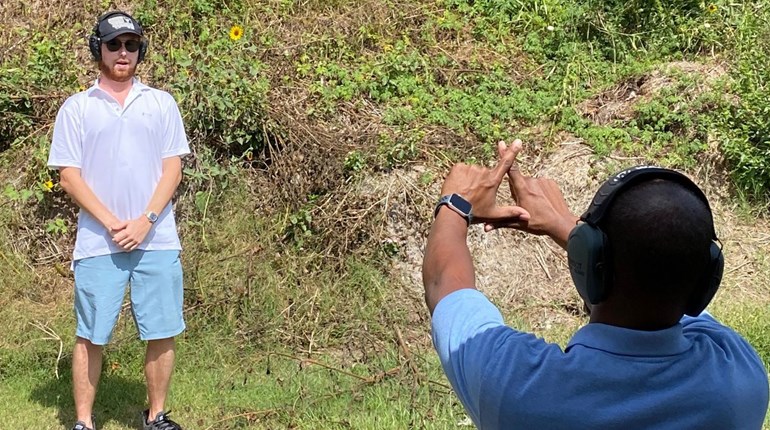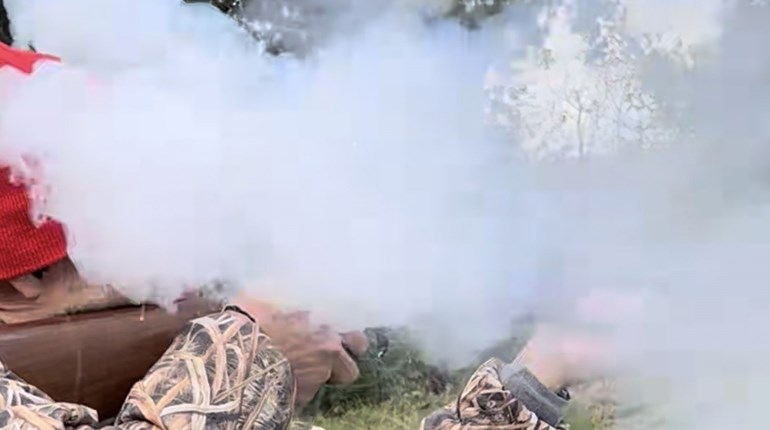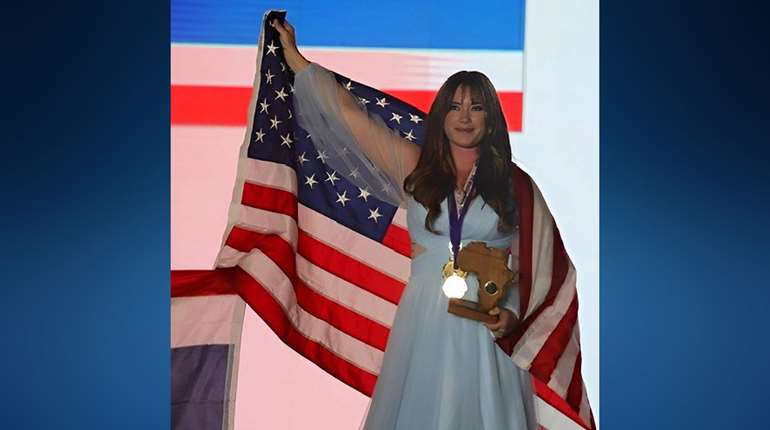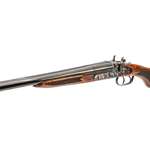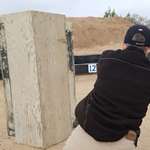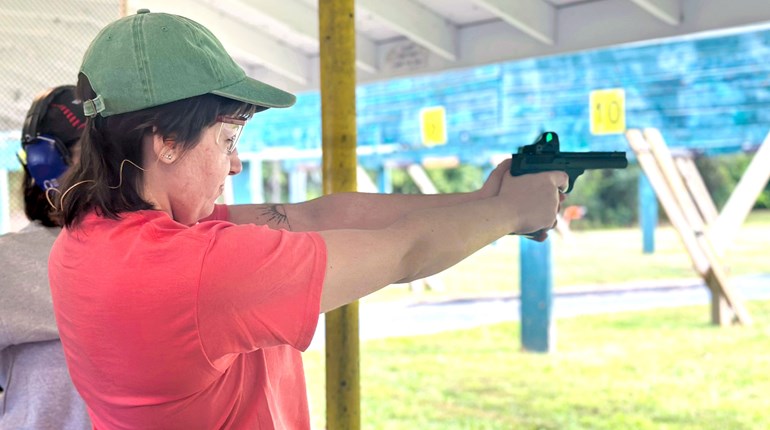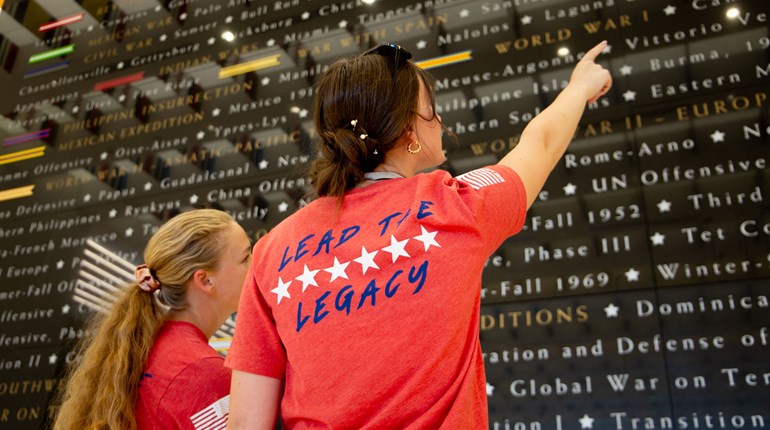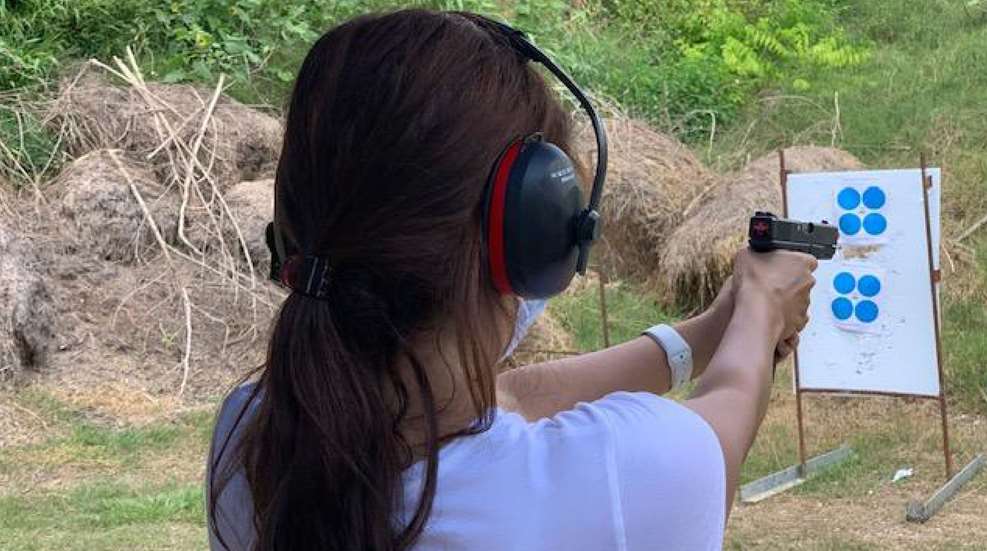
Many modern conveniences seem to be getting more complicated, such as appliances, automobiles and even our phones, with everything now containing a computer chip or some type of electronic component. It seems that if you were born prior to 2010, you need an engineering degree to operate simple items around the home. It is now common to require the assistance of a younger generation to save us from “modern convenience overload” and our less-than-optimal knowledge of electronics.

When it comes to firearms, the reverse seems to be the case. Whereas the younger generation is winning in technology, mature shooters seem to have cornered the market on a broad understanding of firearms, calibers and ballistics.

The NRA teaches that a new shooter should “consult knowledgeable shooters” when selecting a firearm. Who should be more of a “knowledgeable shooter” than an NRA Instructor? After all, when it comes to firearms and training, NRA Certified Instructors are considered the Gold Standard.
I see this almost every weekend in the NRA Firearms Instructor courses that I teach. Regardless if you are young, middle-aged or a senior, if your goal is to become an NRA Certified Instructor, you have a duty to be knowledgeable on the subject of firearms, ammunition, the shooting sports and personal protection. As an instructor, it is important to remember that the public seeks out NRA Instructors for many reasons, not just what you are interested in.
When you decide to become an NRA Instructor in a specific discipline, you have agreed to become the Gold Standard in firearms training. That means giving the proper information to the public and meeting the needs of our students. NRA Instructors not only need to be knowledgeable, but they also need to remain knowledgeable. Instructors can increase their knowledge through research, asking questions and continuing their education.

Research
Research is one of the easiest things to do to become knowledgeable. The hardest part of researching is stepping out of your comfort zone. It is easy to research topics that are the most interesting to you or even those that you are familiar with. Researching unfamiliar topics can be difficult because you may not know where to start because it is just not your area of expertise.
The NRA is very diverse in its training classes and topics, and its consumers are no different. Not everyone owns a firearm for the same reason. At the beginning of each of the NRA’s Basic Rifle, Pistol and Shotgun courses, the NRA lists several of the reasons why people own firearms: recreational shooting, competitive shooting, hunting, protection, collecting, and exercising a constitutional right, just to name a few.
I have heard numerous reasons why my students own guns and why they are taking my class. As such, NRA Instructors must be able to meet their needs. For example, if you are a 9 mm aficionado and your only interest in firearms is for personal protection and tactical training, how are you going to meet the needs of a student that signed up for your pistol class who is interested in learning skills to hunt with a large bore revolver? Even though you are teaching the NRA’s Basic Pistol curriculum, you should be able to answer basic questions regarding hunting with revolvers or at a minimum, know of reputable resources where you can recommend a student who has specific questions beyond your familiarity.
Ask
Do not assume you know what your students want out of their class—ask them! When someone shows an interest and signs up for one of your classes, it is extremely beneficial to both you and the student to ask them what they expect to get out of the class. If you do not know what the student expects to learn from the class, you may not have a happy student. Happy students mean you might have repeat customers. After all, you are promoting the Gold Standard in firearm education that the public expects, and you are upholding the image of the NRA.
There is no downside to asking questions. In fact, asking questions can improve your knowledge by forcing you to research topics with which you are unfamiliar, or learn about different shooting sports in which you may have never participated. For example, I was conducting an NRA Basic Shotgun Class and one of the students told me ahead of time they had not had any luck in hunting sandhill cranes. He had taken shots at some but was never able to bring one down.
Being a waterfowl hunter, I have not yet had the opportunity to hunt sandhill cranes. So, when I was preparing for class, I did some research on hunting this particular game bird. It turned out that the student was an average shotgun shooter, and the course did improve his shooting skills. What really made him happy at the end of the day was that I was able to identify his problem. He was using too small of shot size. It turned out that the shot he was using was just “bouncing” off the birds. I was rewarded with additional students who were referred to me, and pictures of this happy student with his limit of sandhill cranes after his next successful hunt!
Education
Continuing education is the best way to stay knowledgeable about a specific topic. As a firearms instructor you cannot become stagnant. Never think that you know it all, know enough, or are too good to know more. Your first stop for firearms education is the NRA. If you are an NRA Pistol Instructor and have never tried shotgun shooting, take an NRA Basic Shotgun Course. If you have never hunted, take the free online NRA Hunter Education Course. The resources are available for all NRA Firearms Instructors to continue their knowledge of firearms.
Another place to look to for continuing education is your state and local law enforcement agencies. Many agencies have public safety programs that are offered to citizens to keep them safe in their communities. If you are an NRA Personal Protection Inside the Home (PPITH) and/or an NRA Personal Protection Outside the Home (PPOTH) Instructor, a lot of updated information and current practices can be learned by taking these programs that relate to your classes. Not only will this information be a benefit to your students, but it shows how NRA Instructors work with their state and local law enforcement to encourage additional knowledge and education. This is definitely a win-win!
Knowledgeable NRA instructors produce a product that is in high demand: an informative class that their students leave feeling like they got their money’s worth. An NRA Instructor who is knowledgeable about the firearm discipline he or she is teaching is an instructor who takes pride in his or her class!













